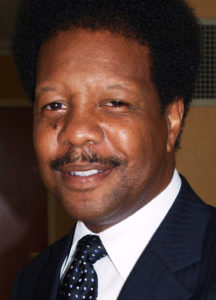FBI probe of CRA spins like a thriller
UNDER SCRUTINY
By St. Clair Murraine
Outlook writer
Amidst a cloud of uncertainty from an on-going FBI investigation, some members of the Community Redevelopment Agency tried to reassure residents of Tallahassee’s Southside that they’re not out of the loop for improvements.
They promise infrastructure changes that should encourage investors and pointed to the possibility of reshaping the areas that need it most.
But while those plans are in the future, there is the bigger issue of the FBI probe. Reactions have unfolded somewhat like a suspense thriller while the CRA waits to see what will unfold from 90,000 pages of records that were sent to the FBI, which were subpoenaed a little more than a month ago.
In the latest twist surrounding the CRA, the Leon County Commission voted 6-1 to leave the agency. Tax dollars from the county and city governments fund the CRA, which uses the money to invest in areas deemed blighted.
At the same time, the CRA postponed its first meeting since the investigation began. The rescheduled meeting became a controversy because of uncertainty over whether there would be a quorum.
However, on the day that the meeting was to take place, four county commissioners and three city commissioners confirmed that they were prepared to meet. The CRA is made up of representatives from the city and county governments.
It’s unlikely that the CRA would have discussed the investigation, following the advice of City Attorney Lew Shelley. He told them not to comment or speculate on any part of the probe.
The investigation is looking specifically at the Downtown CRA. The other half of the agency is the Frenchtown-Southside CRA, which isn’t part of the investigation.
The documents that the FBI requested go back to 2012. Documents pertaining to business owners and developers were demanded in the subpoenas sent to the city and the CRA.
Both CRAs were created to help blighted areas that it has designated in need of redevelopment. Concentration on the downtown area, while little has been done in Frenchtown and the Southside, has long been a concern.
Exactly what the FBI is looking for wasn’t clear, but it’s known that the CRA’s dealings with some of the downtown power brokers are at the heart of the investigation.
Speculation was rampant during the past two weeks that the FBI might have gone as far as to send an undercover agent for an inside look at the CRA. The speculations have been fueled by Mike Miller, a developer whose company, Southern Pines Development of Atlanta, expressed interest in doing business with the CRA.
But since making his pitch in meetings earlier this year with several city and county officials, including the county’s planning department, nothing has been heard from Miller.
The lack of transparency in some of those CRA’s deals has been a lingering concern.
“I’ve been thinking about some things for some time,” said Leon County Commissioner Bill Proctor, who cast the only dissenting vote for the split from the CRA. “Evidently, I’m not the only person looking at some things because the FBI is looking at those transactions.”
High on the FBI’s list of businesses with ties to the CRA is one run by Adam Corey. He is the developer who supported the city’s investment in The Edison, a restaurant built in a refurbished power plant located in Cascades Park.
The FBI also wants to know about mayor Andrew Gillum’s former campaign treasurer; JT Burnette, who has ties to the Hotel Duval which received CRA dollars. Also on the list are Paige Carter-Smith, the executive director of the Downtown Improvement Authority, as well as Kim Rivers, CEO of the medical marijuana dispensary Trulieve.
In all, the FBI subpoenaed records of about 24 individuals or businesses that have dealings with the CRA. Gillum issued a statement saying he isn’t one of the people that the FBI is scrutinizing, explaining that the city will cooperate with the investigation.
A grand jury which operates in secrecy is expected to take up the case this week.
Unless the outcome of the investigation leads to dissolving the CRA, advocates for development of the Southside hope that the agency’s priority will shift to their community. The CRA might have interest in doing just that, considering the information they presented at Saturday’s meeting at Walker/Ford Center.
“We all have to come together to make it happen,” Maddox said. “We can make the land more attractive. At the end of the day, we need to focus on doing some good things for Frenchtown-Southside.”
Proctor said the CRA might have done more on the Southside and if projects were presented by developers. The CRA only reacts to plans presented to it, Proctor said.
“People on the south side aren’t asking for nothing,” he said. “We’re just reacting like going to the bank and asking for a mortgage. Nobody is asking for anything. Nobody is making an application to get some of the money. It’s down there.”
However, there have been a handful of Southside businesses that received CRA funding. The owners of Piggly Wiggly were given $250,000 and the CRA has agreed to put $1.5 million into Carepoint Health Center, a Big Bend Cares project.
Proctor suggested that investors take the same approach as the Bethel Missionary Baptist Church’s Investment Partners. The CRA has scheduled a second meeting on proposed development of stores, offices and housing that is the brainchild of Rev. R. B. Holmes, pastor at Bethel and owner of the Capital Outlook.
The Bethel project is considered a major part of revitalizing the economy and quality of life in Frenchtown.
Another issue that sours Southside supporters is the zoning of areas that make up the Southside CRA. Proctor said the boundary should go much wider.
The south side zone stretches from Lake Bradford to South Monroe, but not including Wahnish Way and areas of the FAMU campus. It stretches from Gaines Street on the north end to Orange Avenue on the south.
Some of the issues regarding the CRA and the Southside were expected to be addressed at a meeting this past Thursday night by the Southside United Citizens Action Alliance.
Dianne Williams-Cox, founder of the organization, said Southside residents shouldn’t “be fooled” by the little action that the CRA has taken so far.









